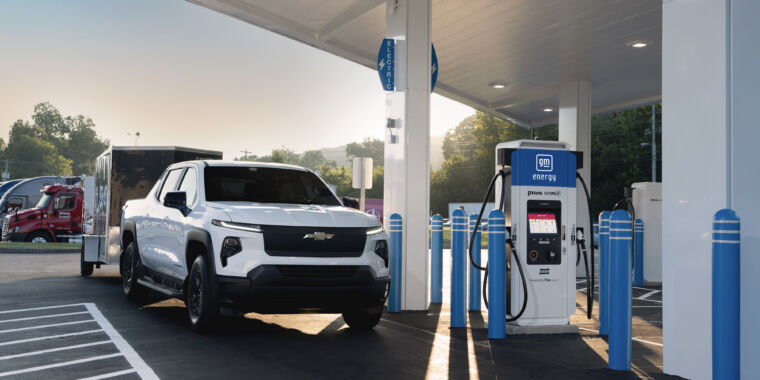General Motors Utilizes AI for Strategic Decision-Making in EV Charging Station Placements
Many companies have been quick to embrace AI technology, touting its potential to revolutionize industries. However, the results have been mixed, with some ventures ending in disaster. General Motors, however, has managed to leverage machine learning successfully to guide its business decisions, particularly concerning the installation of new DC fast chargers for electric vehicles.
Strategic Planning for EV Charging Stations
In collaboration with the Pilot company, General Motors announced plans in 2022 to roll out 2,000 DC fast chargers at Flying J and Pilot travel centers across the United States. A critical aspect of this initiative was determining the most suitable locations for these chargers, which could enhance customer convenience and satisfaction.
Jon Francis, GM’s chief data and analytics officer, emphasized the company’s commitment to simplifying operations for customers, employees, dealers, and suppliers. By harnessing the power of AI, GM aimed to streamline various aspects of its business, including manufacturing, engineering, supply chain, and customer experience. Although autonomous vehicles represent a significant focus for AI, its impact extends across multiple functions within the organization.
Francis highlighted the importance of avoiding distractions and focusing on impactful solutions that drive business growth. With the goal of deploying chargers at 200 travel centers by the end of 2024, GM faced the challenge of selecting optimal locations from over 750 sites spread across the US and Canada.
Cost considerations were paramount, given that each DC fast charger entailed significant investments. Beyond the initial acquisition costs, additional expenses related to electrical infrastructure upgrades and permitting processes added complexity to the project. Maximizing the utility of resources while avoiding redundancy in charging station placements was crucial.
AI-Powered Decision-Making
To address these challenges, GM’s data scientists developed sophisticated tools that integrated multiple geographic information system (GIS) datasets. By aggregating data on existing charger locations, traffic patterns, and travel center sites, GM gained valuable insights to identify prime locations for new chargers. This comprehensive approach facilitated the strategic selection of sites that would yield the greatest impact.
The complexity and scale of the datasets necessitated the utilization of machine learning algorithms, as manual analysis would have been impractical. GM’s adoption of cloud platforms and distributed clusters enabled it to process vast amounts of data efficiently, culminating in the successful deployment of 25 charging sites in the initial phase. With plans to expand to 200 locations by the end of the year, GM’s commitment to leveraging AI for tangible business outcomes is evident.
By employing AI technology intelligently, General Motors has demonstrated a clear strategic advantage in the electrification of transportation. The integration of machine learning in decision-making processes underscores GM’s innovative approach to enhancing operational efficiency and delivering value to stakeholders.
Image/Photo credit: source url





